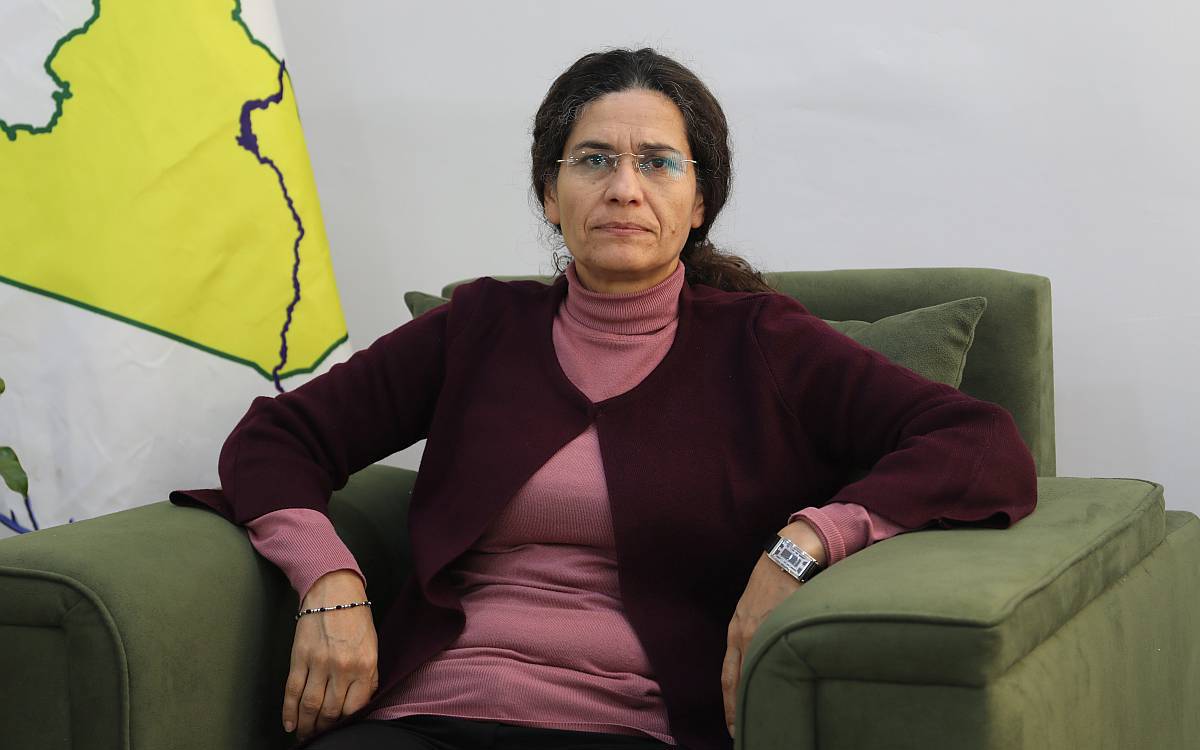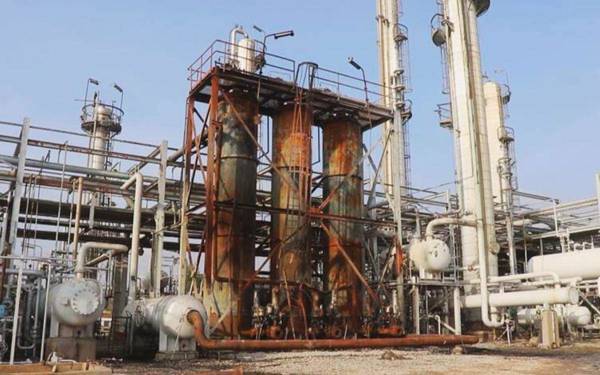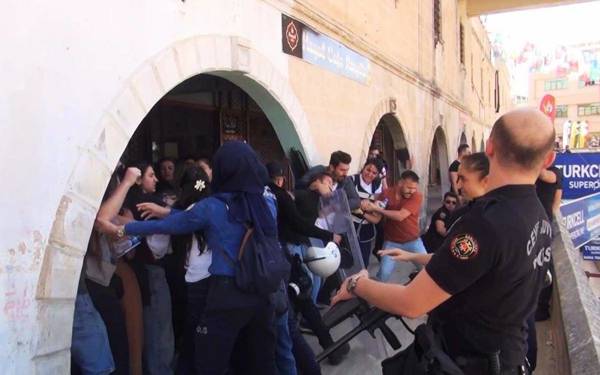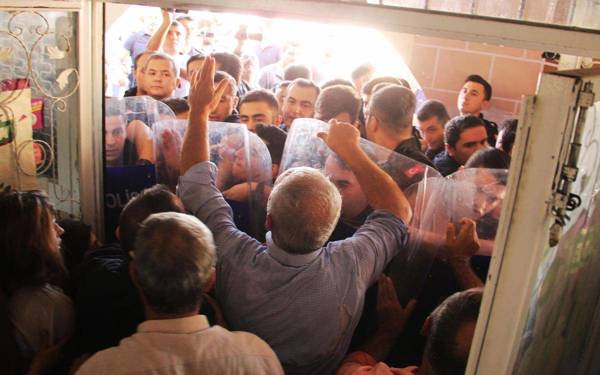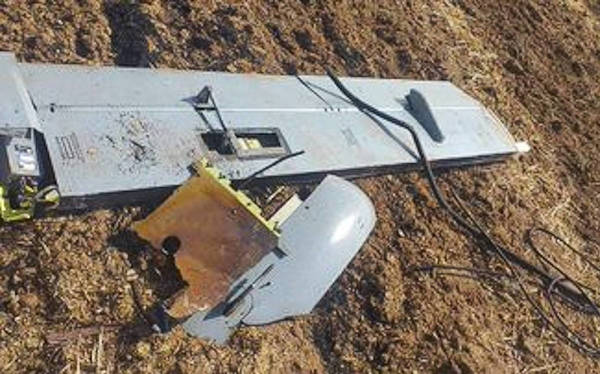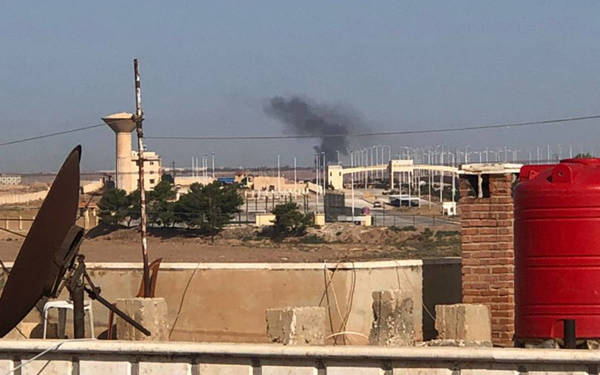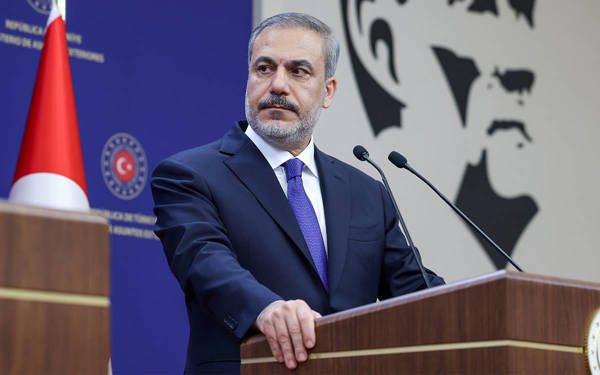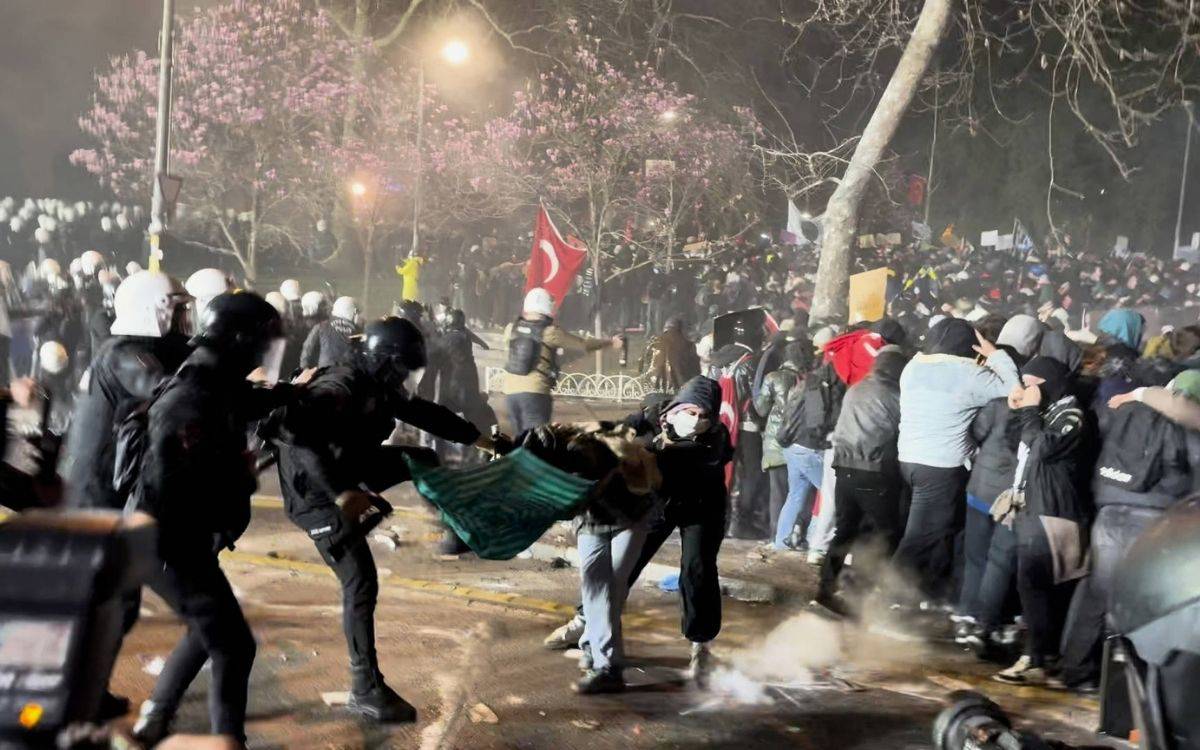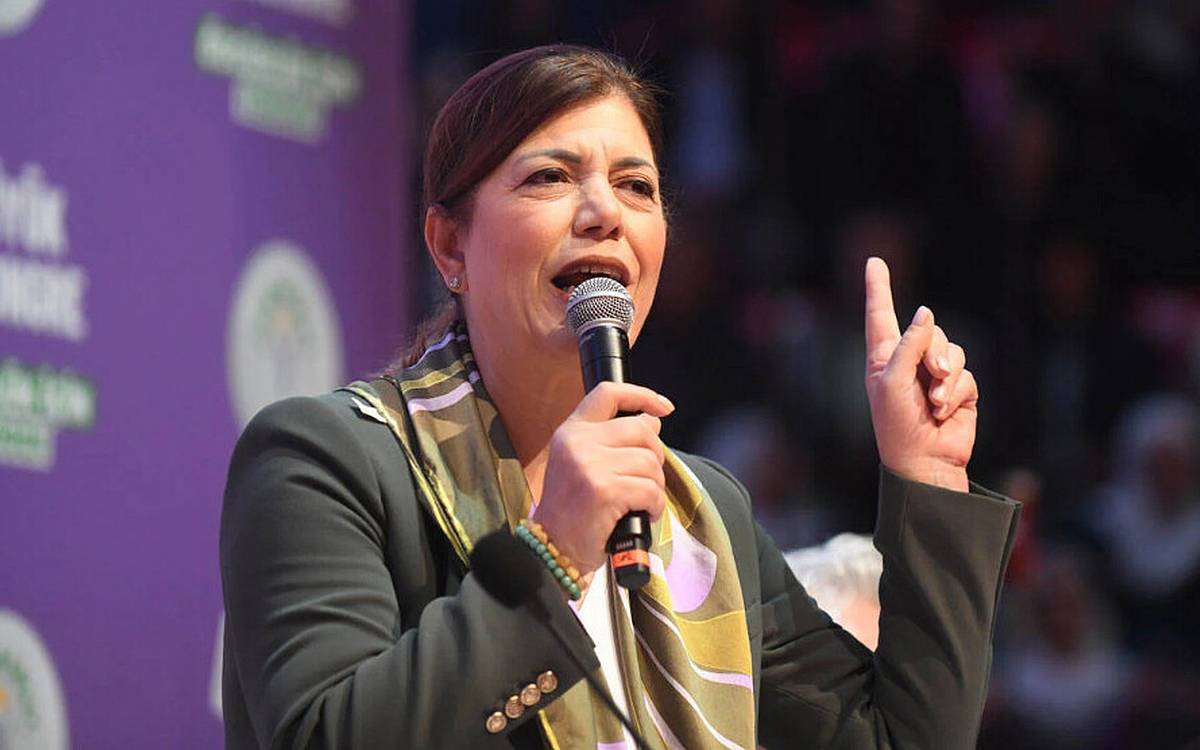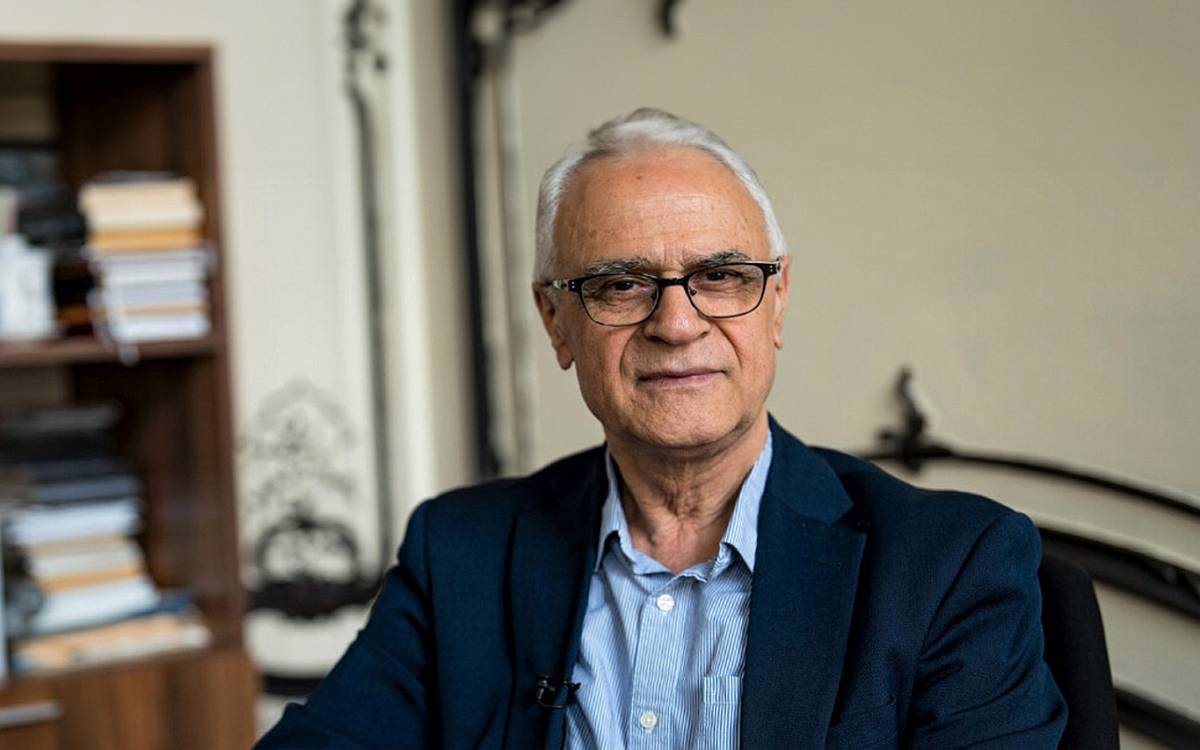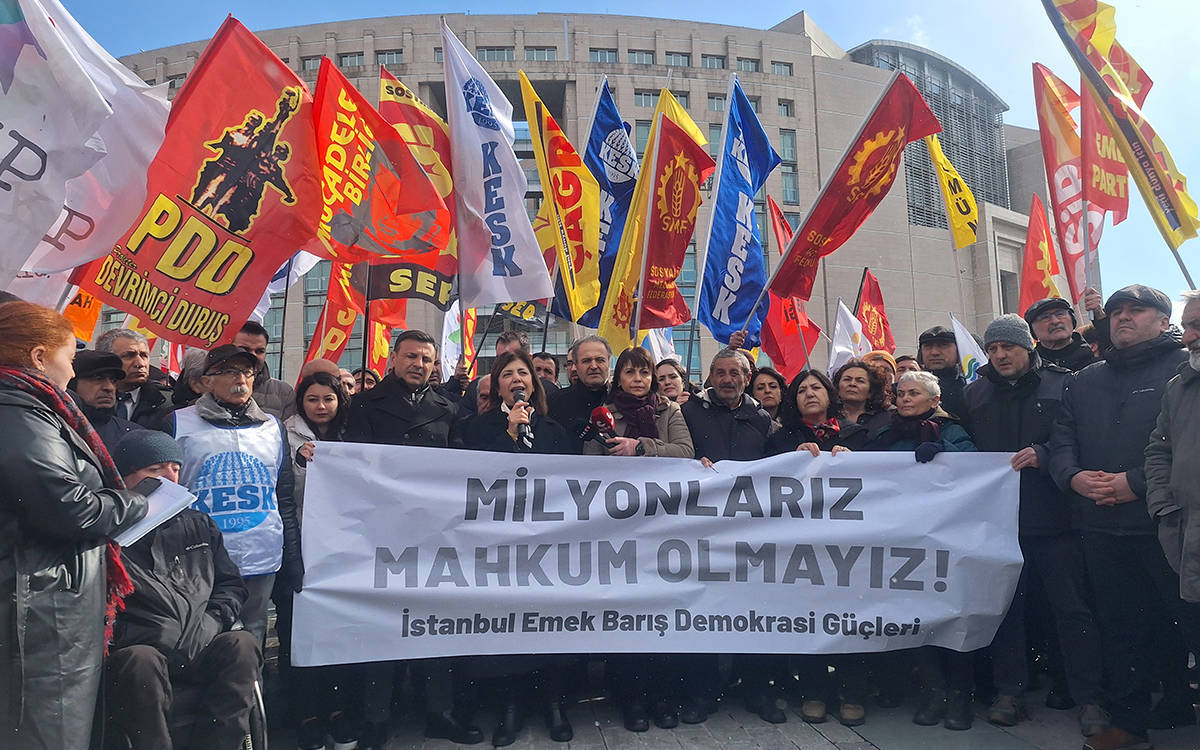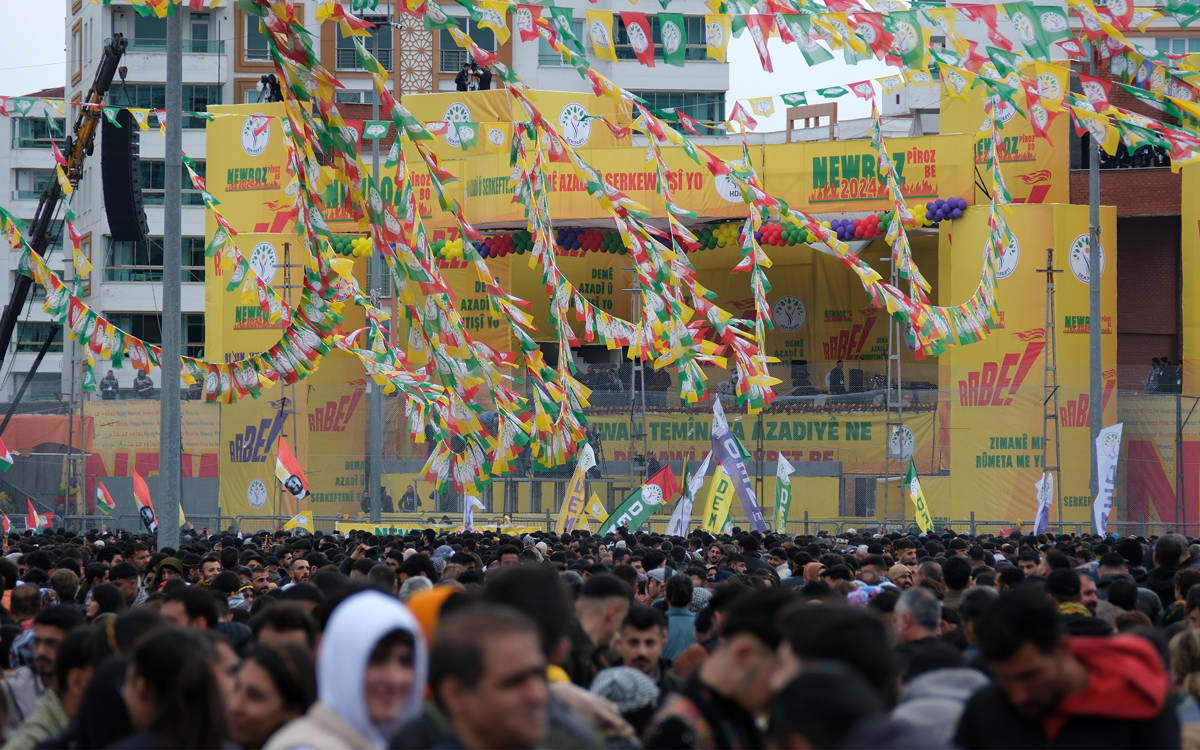Turkey initiated airstrikes on the areas under the control of the Autonomous Administration of North and East Syria on October 4 following the bomb attack on the General Directorate of Security building in Ankara on October 1.
Turkey stated that the PKK members responsible for the attack in Ankara had entered the country from Syria, while the Autonomous Administration denied these allegations.
Air strikes started in the wake of the statement by the Minister of Foreign Affairs, Hakan Fidan, that "all infrastructure and superstructure facilities belonging to the PKK/YPG are legitimate targets," and targeted various structures including power plants, oil facilities, schools, water, and wheat warehouses. These attacks resulted in the loss of 47 lives and at least 59 people were injured.
The Autonomous Administration, pointing out that the attacks caused a billion dollars in damages, emphasized that targeting civilian infrastructure facilities goes against international agreements.
In light of these developments, we discussed the situation of the autonomous administration in northeast Syria, the possible future actions by Turkey, and the stance of other actors in the region with Ilham Ahmed, the Co-Chairperson of the Executive Council of the Syrian Democratic Council (MSD).
Ahmed, stating that the AKP government is pursuing a policy aimed at destroying the region, emphasizes that regional actors should not take a stance against the rights of the Kurds or the peoples of Syria.
"Four million people suffered from the attacks"
What is the outcome of the Turkish Armed Forces' air operations? Reports have indicated that residential areas, power plants, infrastructure, and superstructure have been targeted. Could you describe the current situation in the region?
These attacks have caused significant damage to the region's infrastructure. They targeted power plants, water reservoirs, wheat silos, 48 schools, and gas stations. The Turkish state deliberately targeted the infrastructure, rendering these structures out of service.
The region is currently facing an electricity and water crisis. Even finding gas for cooking at home has become a challenge, causing significant difficulties. Moreover, it was time for schools to open, and due to the damage to schools, thousands of children are being deprived of education.
The Turkish government, especially President Erdoğan, has referred to Israel's actions and attacks in Gaza as 'war crimes.' However, while making these statements, the same government is carrying out similar actions in our region.
They are aware that approximately 2 million people live in this region. These people, who are already struggling to maintain their daily lives, have been directly affected by the attacks. While more than 2 million people live in the region, over 4 million people indirectly suffered from the attacks since they depended on the fuel and gas stations.
If infrastructure is not rapidly restored, the population will face significant hardships, challenging living conditions, and many may be forced to leave the region.
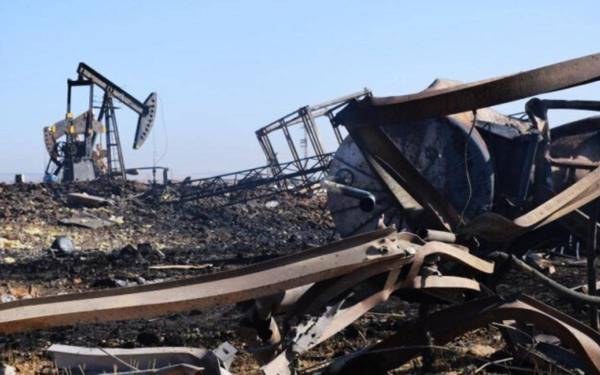
Attacks in Rojava caused over 1 billion dollars in damages
The Turkish state, the AKP government, frequently expresses concern about the presence of refugees and highlights the situation of Syrian refugees, making requests and seeking help from Europe. However, at the same time, they are targeting the infrastructure of the region.
The AKP government is displaying a significant degree of hypocrisy, and President Erdoğan, as the head of the government, is leading this policy. They seem to be interested in exacerbating the existing economic crisis and turning it into a hunger crisis. The AKP government appears to be pursuing a policy aimed at destroying the region.
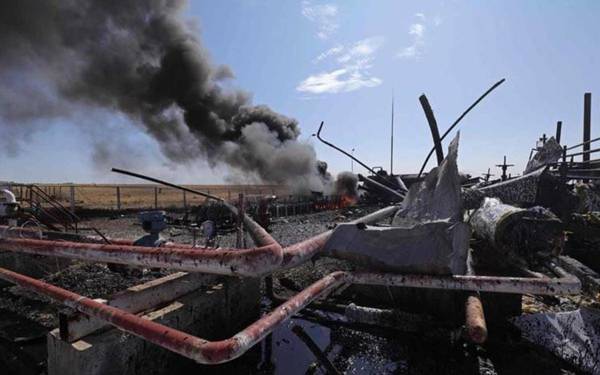
'Turkey is trying to minimize the region's power and resources'
"They aim to normalize the attacks"
Is there a possibility of more extensive new attacks?
This possibility always exists. The Turkish state's drones are constantly flying in our region, and there is always a possibility of attacks. They consistently seek permission from the United States and coalition forces to expand the scope of their attacks. They reiterate this in every statement, aiming to normalize the attacks, and each time, they create conditions for broader aggression.
On October 5, they launched attacks using reconnaissance aircraft, drones, and F-16 planes. The use of F-16 aircraft is not a standard situation.
They target civilian populations with drones, either from within their borders or often crossing the borders and entering the region. They make life in the region nearly impossible.
Additionally, by doing this, they are strengthening radical Islamists who already have a foothold in the region, aiming to bring them back to the forefront.
On the other hand, the Autonomous Administration and the local population in the region want to resolve their issues with Damascus. However, the Turkish state does not allow this. They consistently engage in behaviors that exacerbate the problem and prevent it from being resolved through an agreement with Damascus.
They carry out attacks, accusing the region of 'terrorism' and claiming that we have an influence on what happens in Turkey. But we have no connection to the attacks in Turkey. The Turkish state, based on the false premise that we are involved in attacks in Turkey, deceives not only the Turkish public but also international public opinion. They want to sustain their attacks continuously.
"Demascus chooses to remain silent"
What is Damascus' stance in the face of these attacks, and have you had discussions on this matter?
When an attack occurs in Northeast Syria, it is not just an attack on us; it is essentially an attack on all of Syria. We understand it this way, and we believe it should be understood this way. The regime should also understand it this way. However, the Damascus regime remains indifferent to Turkey's attacks, especially when it comes to attacks on our region.
While they may say in their statements that they do not approve of what the Turkish state is doing, their silence and indifference embolden the Turkish state.
The Syrian state is recognized internationally and has legitimacy; it can raise its voice more. However, it chooses to remain silent. Ultimately, the regime also opposes the rights of the Kurds and the rights of the Syrian peoples, which is a regressive stance, and undemocratic. The regime is calculating how to sustain its power. But we are in favor of resolving the problems in the region through negotiation and dialogue. We have always held this view, and our stance and efforts in this regard are well-known.
"The attacks harm the fight against ISIS"
What is the stance of the coalition forces and Russia regarding the operations of the Turkish Armed Forces, and do you have discussions with them? What are they saying?
We are in constant communication with them. We have expressed our stance regarding these attacks, and we have asked them to take a stance as well. They have revealed the extent of their stance in their official statements.
The coalition knows that such attacks harm the fight against ISIS. Therefore, we expect their stance to be clearer and more explicit. In particular, we want them to close off our airspace to Turkey. They need to adopt such a stance.
We address all parties. We say to the coalition forces, to Russia: remaining silent means being complicit in the crimes against humanity in the region. Taking a clear stance and banning the weapons being used is the first requirement for establishing peace in the region. Because the opposite harms the fight against ISIS.
Biden's decision to extend the state of emergency in the region
What would you say about the US President Joe Biden's statement that "Turkey's operations in Northern and Eastern Syria pose a threat to U.S. national security?"
This statement came rather belatedly; it should have been made sooner. This attack was carried out on the anniversary of the Serêkanîyê attack (On October 9, 2019, the Turkish Armed Forces and Syrian National Army conducted a joint operation in the Serêkaniyê and Girê Spî regions of Rojava, named "Operation Peace Spring").
However, there was an important point in the statement, indicating that the state of emergency in the region was extended due to Turkey's attacks. From this statement, it is evident that Turkey's actions are a cause for war, and therefore, the continuation of the state of emergency is deemed necessary. We view this positively and emphasize that this is indeed the case. However, it should not be limited to statements alone; it needs to be translated into practice. A no-fly zone should be established in Northern and Eastern Syria, preventing Turkey from using drones and F-16 fighter jets in the region and launching ground attacks.
"It is crucial to protect the infrastructure of the Autonomous Administration"
How do you assess the United States continually defining its relationship with you through the lens of the fight against ISIS? Do you have a dialogue regarding the recognition of your status, and what is the US position on this?
The statements of American officials, especially when Biden came into power, were focused on democracy; they talked about advancing democracy, protecting the rights of peoples, and made other statements in that vein. These statements are important, of course, when translated into practice, emphasized, and should be supported, and should lead to the realization of the rights of peoples. These are principles of international law, human rights. They are laws established by the United Nations. It is important to adhere to them and monitor whether they are being implemented.
In this sense, we attach importance to the fight against ISIS and to maintaining this level of relationship. Because otherwise, it is clear that radical Islam will strengthen violently and expand its influence. Especially the ongoing conflict in Gaza will be spreading like a wave. Therefore, strengthening, developing, and expanding the alliance is important. But at the same time, we believe it is crucial to protect the infrastructure of the Autonomous Administration and maintain the existence of regional governance.
Moreover, providing the necessary support for the components that make up Syria to achieve their rights and preventing attacks against them is essential. Turkey is a NATO member state, and the weapons it uses against us in the region are NATO weapons. In this regard, I believe that the United States' stance in stopping the war, adhering to the principles they claim, and keeping their promises is crucial.
"We are at the stage of genocide"
How will the recognition of Rojava's political will impact the region?
In reality, we are currently at the stage of genocide. There are attacks at a genocidal level. Look at South Kurdistan, look at the North, look at Rojava; in general, we are in the stage of genocide. We want to save ourselves from the clutches of this annihilation. This can only be achieved with the support of the Kurdish public.
A project is taking place in Northern and Eastern Syria. Here, a democratic nation project is being implemented; the fraternity of peoples, peace, equality, women's freedom, all of it is here. Turkey is targeting this place, aiming to suffocate this experience. They want to carry out a massacre. They want history to repeat itself.
That's why the reactions of the Kurdish public, friends of the Kurds, and other peoples are crucial. In times like these, it's essential to show the correct and necessary reactions, and in an effective way. Only this will ensure the project's permanence and acceptance. And this project should first be acknowledged by the Syrian state. Then, it should be accepted in official intergovernmental relations and among peoples. We are working on this as well. We believe that we will escape from the massacres and survive, and maintain this project and make it permanent.
Turkey consistently portrays you as a threat. Are you really a threat to Turkey?
At the end of 2013, we had a meeting with officials from the Turkish Ministry of Foreign Affairs. At that time, the YPG was ensuring border security. The officials explicitly said to me, "We thank you because Kurdish fighters are safeguarding this border. Thanks to these fighters, our country's security is being maintained. But wherever the Free Syrian Army is present, there are constant problems and issues." These were the words of Turkish Ministry of Foreign Affairs officials. In fact, Ankara knows better than anyone else that we have never posed a threat to Turkey. We also have positive effects in terms of democracy. If peace is established here, our influence would be very positive.
In fact, our Autonomous Administration project is also helping the Turkish society. Turkey is facing a deep economic crisis. A military regime could come to power at any moment. There is no democracy. If there is democracy here, it would also affect Turkey and contribute to the establishment of democracy in Turkey. I'm not referring to who will be in power. I'm not talking about who will come to power there. I'm talking about a democracy among the peoples and the state's approach to that democracy.
So, the democracy project here will have a positive impact on Turkey, not a negative one. However, the current government in Turkey sees this situation as a threat to itself. If democracy is established here, they think, "I can no longer be in this seat." But our project is all about sharing; it's about democratic sharing, sharing governance, working together. And this project in no way poses a threat to the security of the Turkish state.
"ISIS is not defeated, their connections are still active"
What is the current situation in the camps in Northern and Eastern Syria where ISIS militants and their families are held? Are countries responding to your calls for the repatriation of foreign militants?
We have made numerous calls. So far, only a few states have taken action to repatriate their citizens. Some countries come and take only the children. Others remain, and they are a significant burden. They pose a major security threat. States are very fearful.
Just a few days ago, ISIS carried out a violent attack in Brussels. Such attacks can happen again. Care should be taken because their connections are still active, and ISIS is not defeated. The danger remains in this regard, and the states are not really willing. They are concerned about their security and are not cooperating enough, not helping. There is fear as well. Stopping these actions is not that easy, especially after Turkey targeted the region's infrastructure; resources have become limited.
"Efforts to try to rescue ISIS members in prison continue"
You previously mentioned that Turkey-backed Syrian National Army had targeted camps and prisons holding ISIS fighters and their families. Is this risk still present?
Actually, the forces under Turkey's control are systematically targeting camps where ISIS members are held. For example, the previous attack was on the Hesekê prison and it was planned by groups close to Turkey.
There are always plans in this regard, and we receive information about the preparations made. They are constantly trying to rescue those in prison. For instance, they are moving groups away from the camps through threats. They use private militias in such incidents.
"ISIS's activities and objectives are not over"
Are ISIS attacks in Deir ez-Zor and Hasakah continuing? What is the current situation in those areas?
ISIS is trying to seize opportunities to regroup and organize when it comes to launching attacks in our region. For example, in the past week, many operations were conducted against ISIS. ISIS leaders were captured or killed.
The recent captures were those who were preparing to attack our forces. In other words, they were in an attack-ready state. In the recent period, both in Deir ez-Zor and Hasakah, there have been such attempts. There are camps where ISIS members are held, and when they find an opportunity, thousands of them organize themselves in prisons.
So, we can say that ISIS's activities and objectives are not over. Women in ISIS camps are still raising their children with the dream that one day the Islamic State will be established, and their children will become fighters for that state. These children are being raised as a new generation of ISIS. Therefore, we can say there is a significant threat. In this regard, the partnership between the coalition and the Syrian Democratic Forces is crucial, and this partnership should be continuous.
"The Palestine-Israel war could expand in the region"
Finally, how do you believe will the Palestine-Israel war affect the region and Rojava? You have just said that there is the possibility that it may expand in the region.
There are attacks on Demascus and on the regions that are near the sea. It is being told that there are various groups in Syria and that the radical Islamists are using these groups against Israel. In a way Syria turns into another front in the war, such as Gaza. There is this threat.
We say that Syria should keep away from this war, no matter what. Because Syria is already under fire. There is a civil war, therefore it should keep away from the war. We believe that the problems should be solved through dialogue.
But there is high possibility that this war could expand regionally because it is not only limited to Hamas. Other supporters of Hamas, and first of all the AKP government are playing their roles in this wave of events.
On the other hand, the whole world is helping Israel and this is why this war continues. I say this with regret, but it's possible for the war to escalate and involve many countries.
However, we advocate seeking solutions through dialogue rather than war wherever there is conflict. There is a war in Gaza, and both sides, Jews and Palestinians, suffer losses.
We believe in the rights of the Palestinian people, and their rights should be recognized and accepted. They should be able to live on their own land, and we support their cause. At the same time, Jews are also part of the regional population. The right approach is to resolve issues through dialogue. (RT/PE)






